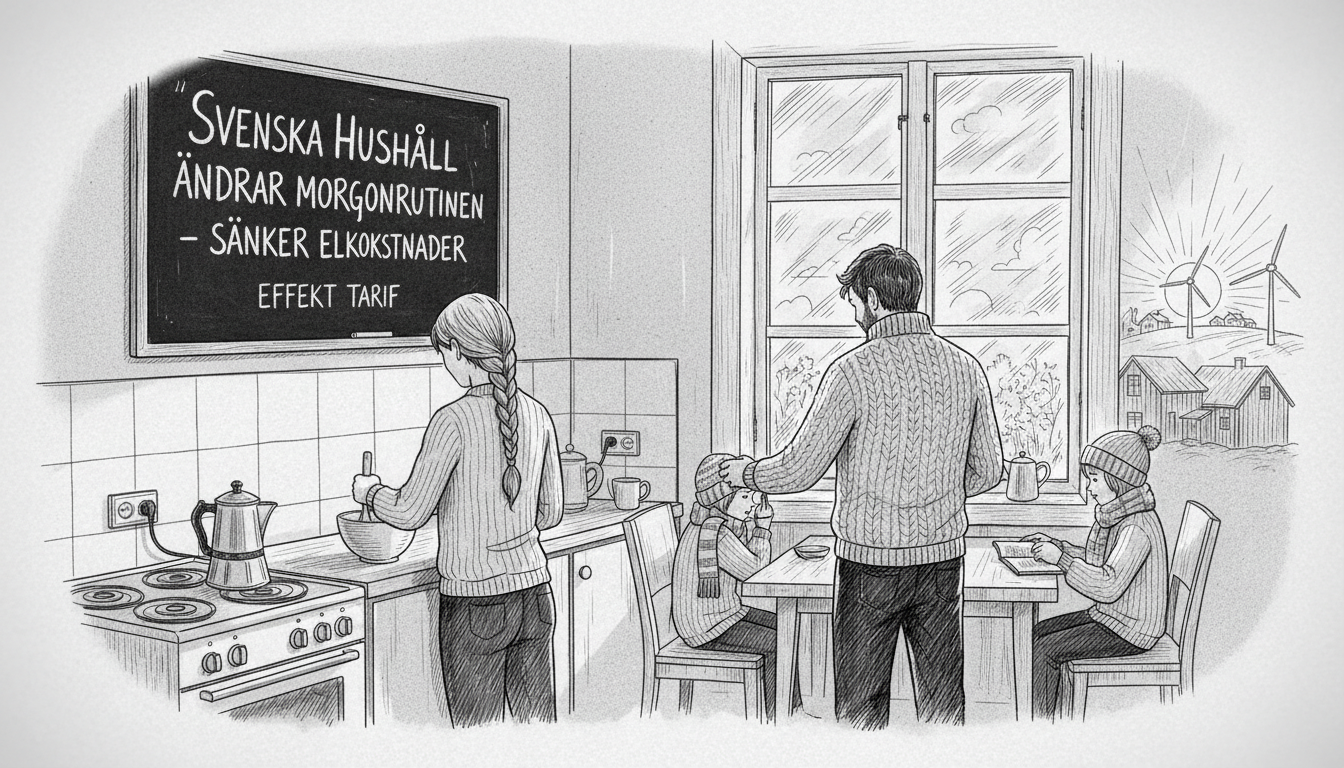Swedish households are discovering that changing their morning routines can significantly reduce electricity network charges. Many families now adjust when they use appliances to avoid peak demand periods.
Over half a million Swedish villa customers now pay electricity network fees that partly depend on when they consume power. This system, called effect tariff, means using multiple high-power appliances simultaneously becomes more expensive.
Henrik Hagberg, head of pricing issues at Ellevio, said over ten percent of their customers have made substantial changes to their electricity usage patterns. About 14 percent of customers now pay lower network fees because they adjusted their consumption habits.
Electricity network companies introduced these tariffs to encourage households to spread their electricity use throughout the day. This reduces strain on the power grid and delays the need for expensive infrastructure upgrades.
The system works by charging customers based on their highest power consumption peaks during the month. At Ellevio, the effect tariff accounts for 40 percent of the total network fee. The company measures customers' three highest hourly consumption peaks each month and bases part of the charge on these measurements.
Electric car owners face particular challenges with the new pricing structure. Many discovered their network fees increased when they charged vehicles during evening hours. Fast-charging electric cars at home during peak evening hours proves especially costly.
Energy experts recommend charging electric vehicles overnight when demand is lower. Some companies offer discounts for night-time consumption between 10 PM and 6 AM. Slow charging with lower power also helps reduce costs.
Approximately 20 of Sweden's 170 electricity network companies have switched to effect tariffs. All companies must implement this system by 2027 according to regulations from the Energy Market Inspectorate.
Ellevio, one of the first major companies to adopt the system, reports capacity peaks have decreased by 2-3 percent. This reduction equals adding about 10,000 more villas to the existing grid without expansion.
Many customers find the new billing system confusing. They struggle to distinguish between general price increases and charges related to their consumption behavior. Ellevio raised general prices when introducing the new tariff system, adding to customer confusion.
The electricity network fee represents a substantial portion of household electricity costs. This fee has increased dramatically in recent years, making it worthwhile for families to understand how to reduce these charges.
Households can save several hundred kronor monthly by managing their electricity consumption strategically. Simple changes like running dishwashers overnight, avoiding simultaneous use of multiple appliances, and scheduling laundry during off-peak hours make a noticeable difference.
Sweden's transition to time-based electricity pricing reflects broader European energy trends. As countries integrate more renewable energy and electric vehicles, managing grid capacity becomes increasingly important. These tariff systems encourage efficient energy use while funding necessary grid maintenance and improvements.
The system represents a fundamental shift in how Swedes think about electricity consumption. Rather than just watching total monthly usage, households now consider when they use power. This change requires new habits and awareness of energy patterns throughout the day.

